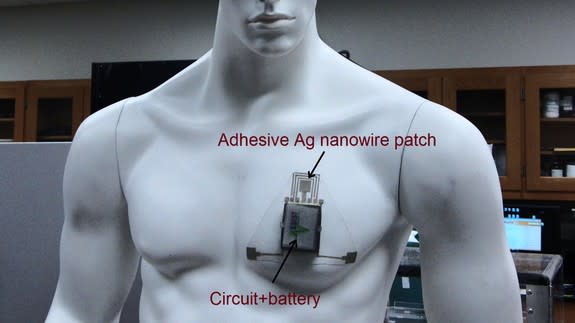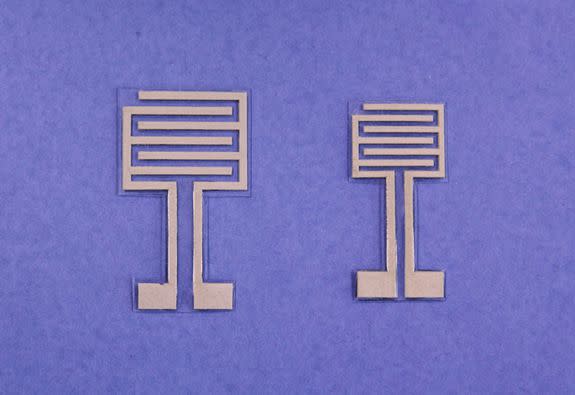This tiny wearable can tell you when you need a drink

Researchers at North Carolina State University have developed an ideal wearable to pair with a fitness tracker for those extra sweaty workouts: a tiny Bluetooth-sensor that tracks skin hydration.
The sensors have much more potential than just reminding runners to drink up after a 5K — according to the research team, the hydration-tracking tech could be a valuable tool for monitoring vulnerable people working in stressful, hot conditions.
"It’s difficult to measure a person’s hydration quantitatively, which is relevant for everyone from military personnel to athletes to firefighters, who are at risk of health problems related to heat stress when training or in the field,” John Muth, a co-author of a paper describing the work, said in a statement.
SEE ALSO: These power suits could make your grandma's life much better
The researchers also believe the sensors can be applied in medicine as an unobtrusive method to track hydration data and even cosmetics as a means to determine the effectiveness of moisturizers.
The flexible sensors consist of two electrodes that monitor the "electrical properties of the skin," which are made of an elastic polymer composite that contains conductive silver nanowires. They can be worn on an adhesive chest patch (as seen below) or on a wristband.
The wristband and chest patch both include a full suite of monitoring tech and Bluetooth capabilities. That way, the data it collects can be wirelessly transmitted to other devices for monitoring.

Image: Shanshan Yao/NC State university
Existing tech for monitoring body hydration is typically expensive, and it involves rigid probe-like devices, whereas these sensors could cost as little as one dollar to produce, with total manufacturing costs of the patch and wrist wearables in line with those of comparable tracking devices, like the Fitbit. For comparison, the researchers claim the monitor they measured their sensor against in tests costs $8,000.
With other hydration monitoring wearables primed to hit the market later this year, this type of tech could soon become another standard measure in our increasingly trackable lives. Just be sure to get your own water bottle when it comes time to fuel up.

 Yahoo News
Yahoo News 